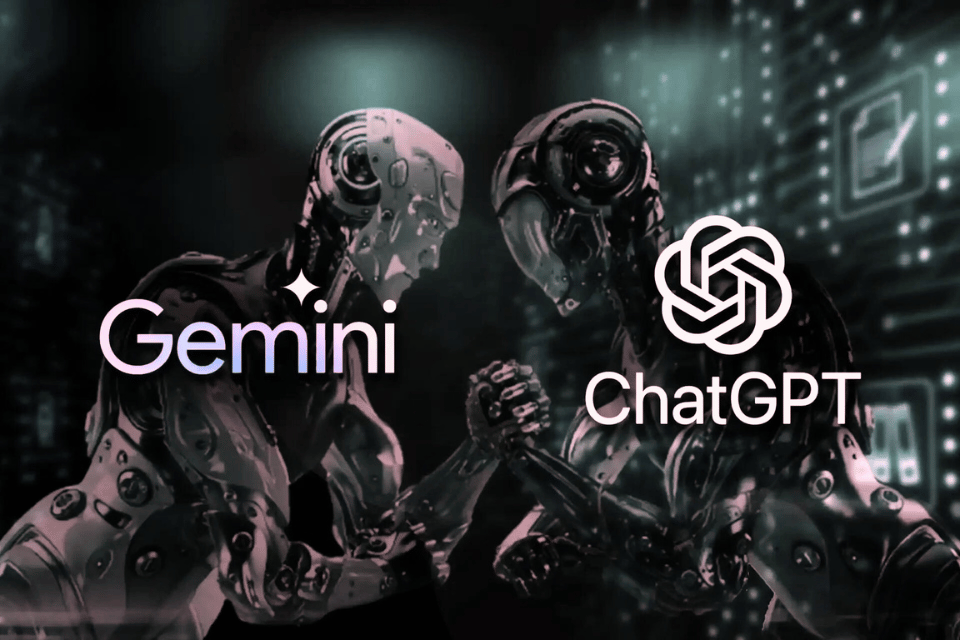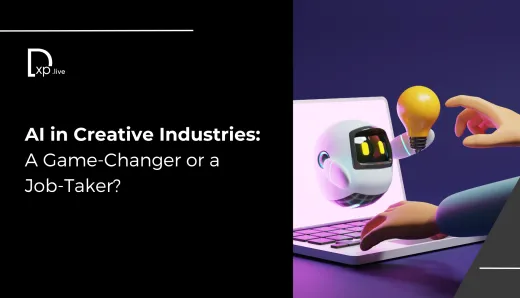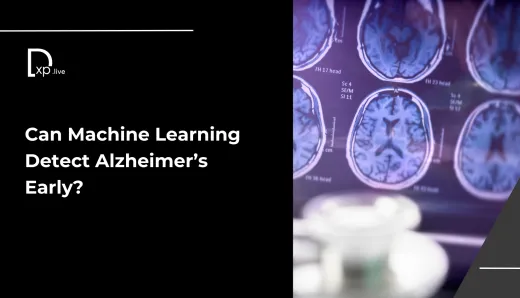ChatGPT to Gemini: The Evolution of AI on the Internet

The internet, as we know it, is undergoing a profound transformation, and AI is at the heart of this change. What started with tools like OpenAI’s ChatGPT has evolved into even more sophisticated systems, such as Google’s Gemini. These advancements are rewriting its very structure and not just enhancing how we interact with the web. AI being integrated into the digital landscape raises important questions about human creativity, ethics, and the future of how we use the internet.
The Evolution from ChatGPT to Gemini: More Than Just Words
When ChatGPT was launched, it offered a glimpse into how AI could change the way we interact online. This AI tool, using large language models (LLMs), can generate human-like responses by predicting the next word in a sentence.
- It became a game-changer for tasks like answering questions, drafting emails, and even engaging in creative writing.
- Although as groundbreaking as ChatGPT was, it had limitations, especially when it came to providing contextually accurate information.
Google's Gemini is the next leap forward. Gemini builds on ChatGPT’s foundation by delivering more nuanced and context-aware responses.
- Gemini doesn’t just deliver generic answers—it can understand complex queries and even refine its responses based on user feedback.
- This feature is integrated across Google’s ecosystem, from search to Google Workspace, making it a more seamless tool for completing tasks like summarizing information or generating reports.
AI-Powered Content Creation: Automation or Creativity?
- AI’s impact on content creation is perhaps one of its most revolutionary contributions to the internet.
- Creating content—whether for news articles, blogs, or marketing—required human writers, editors, and designers.
- AI tools like ChatGPT and Gemini can automate much of this process, generating articles, summaries, and product descriptions in seconds.
This shift has enabled websites to scale content production like never before. Newsrooms are automating news summaries, marketing teams are using AI to craft compelling product copy, and even social media content is being generated with the help of tools like Jasper AI, built on top of LLM models. Won't this raise a crucial question: Can AI truly replicate human creativity?
On one hand, AI excels at repetitive, formulaic tasks, writing basic articles, creating summaries, and generating SEO content. But on the other hand, it struggles with originality and nuance. Human creators are still essential for crafting narratives that require emotional depth, strategic thinking, or innovation.
Transforming Search and Personalization
Perhaps one of the most exciting developments in AI’s rewriting of the internet is its ability to transform search engines. For years, search engines have relied on algorithms and keywords to generate results. AI models like ChatGPT and Gemini are elevating search by focusing on the intent and context behind queries, delivering more personalized and accurate results.
- Imagine a world where your search engine doesn’t just show you a list of links but rather generates a tailored response, understanding what you really mean based on previous searches or even your profession.
- AI-driven tools can provide more direct answers, summaries, or follow-up suggestions, making search engines more intuitive and useful than ever.
Ethical Considerations: Navigating the Risks of AI
- As AI becomes more deeply integrated into the fabric of the internet, it also brings significant ethical challenges.
- AI tools can generate vast amounts of content, but they can also spread misinformation, create biased results, or invade user privacy.
- Tools like ChatGPT and Gemini, while powerful, require governance to ensure they are used responsibly.
- Misinformation is a major concern. AI, by its nature, predicts and generates plausible-sounding content, but it doesn’t always fact-check its output.
This has led to the rise of “AI hallucinations,” where the AI produces inaccurate or misleading information. Additionally, concerns around privacy and data usage are growing. We know AI systems learn from users, but there’s always the risk that personal data could be misused or exposed.
The AI-Driven Future of the Internet
- From ChatGPT to Gemini, AI is redefining the internet by making it more interactive, personalized, and efficient. These advancements are not just about technology—they’re about transforming the very way we search, create, and engage online.
- AI continues to evolve, and its potential is limitless, but it also comes with challenges that need to be carefully managed, particularly around ethics and human creativity.
Though AI is rewriting the internet, we still have the pen. By combining the power of AI with human insight, we can shape a future where technology enhances our creativity and productivity without compromising authenticity and trust. This new chapter of the internet is just beginning, and we’re all part of the story.
Dive into the conversation! Stay in loop with our fresh takes on all the insightful topics!!




